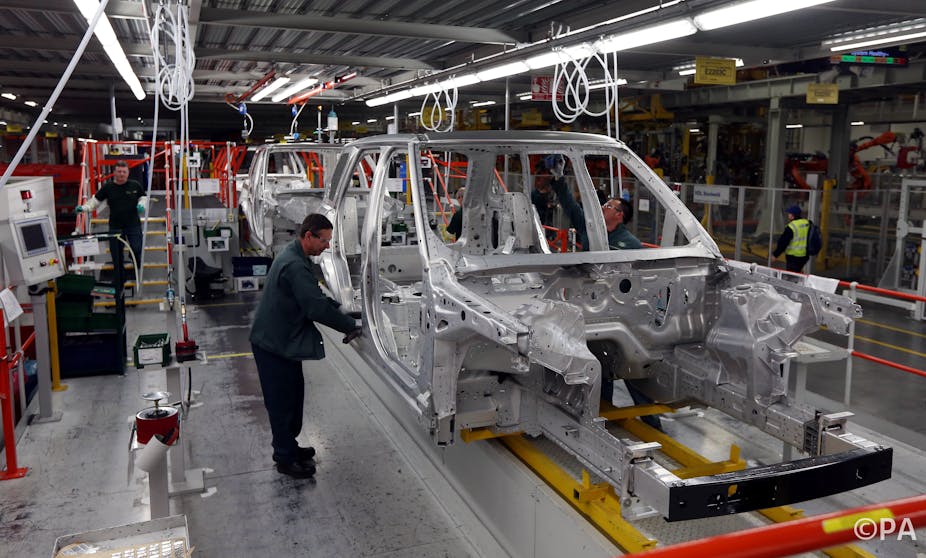The future competitiveness of the British economy is founded on the country’s engineers.
Sir James Dyson, one of the UK’s most important entrepreneurial designers, regularly bemoans the shortage of skilled workers in Britain. Currently Dyson wants to recruit a further 650 engineers this year, 300 at the company’s UK base in Malmesbury and 350 in Asia. But he will find it difficult to recruit engineers for the UK positions, though he will have no difficulty filling the posts in Asia.
In 2011 Jaguar Land Rover (JLR) declared that it was going to build a new £350m engine plant near Wolverhampton. This was excellent news for JLR’s 150 automotive suppliers located in the West Midlands. Like Dyson, JLR faces difficulties in recruiting trained engineers and the company is being forced to recruit engineers from its suppliers. These suppliers, often small family-owned firms, are in turn worried about losing their core engineering staff to JLR, a global brand who will have no difficulty in attracting staff away from smaller rivals. The problem is that the 150 suppliers will find it difficult, perhaps impossible, to recruit new staff in their place. JLR’s presence in the UK requires the existence of a dynamic and innovative supply chain and a source of trained engineers.
The long-term future of companies like Dyson and JLR is being undermined by skill shortages within the UK rather than global competition. This is perhaps a paradox: the most critical constraint on the growth and competitiveness of manufacturing firms lies in local skills shortages rather than competitors in low-cost locations.
It is worth considering this skill shortage in relation to current British economic policy that emphasises the importance of rebalancing the British economy. Exports of manufactured goods must make an important contribution to the balance of trade, to employment and tax revenue. We need a manufacturing renaissance that will revolutionise the British economy.
Accounts of the decline of British manufacturing have tended to focus on employment decline and the transfer of production overseas rather than a more balanced analysis that recognises that manufacturing has undergone a dramatic revolution.
Those British manufacturing firms who survived the shift towards machinery and competition from abroad have responded to globalisation by transforming themselves into innovative knowledge-intensive organisations. Global competition has encouraged British firms to concentrate on high value products that are often customised to meet the requirements of individual customers rather than being mass produced.
Competitiveness is now often based on a firm’s ability to develop new products and to commercialise them rapidly. This means that the average British manufacturing firm employs more highly-skilled engineers, designers and marketing professionals. The difficulty is in recruiting them given the shortage of engineers.
How do we explain this shortage? First, the UK produces around 12,000 graduate engineers a year, but currently there are over 50,000 engineering vacancies in the UK. To compound the problem, many engineering graduates are attracted to jobs outside manufacturing.
The British school system has also tended to over-emphasise deindustrialisation. Thus, many students at school believe that products are manufactured overseas and not in the UK. The school syllabus needs rebalancing to emphasis the critical contribution that manufacturing continues to make to the British economy.
Immigration policy has also contributed to the problem. Restrictions imposed by the current government make it difficult for companies to overcome the skill shortage by recruiting foreign trained engineers.
At least once a year Dyson draws attention to the shortage of skilled engineers in the British economy and the constraints that this places on the growth of his company. Nothing appears to change. It is time for the government to take this problem seriously and to act now before it becomes impossible to overcome.
There are major difficulties. The only short-term solution is the recruitment of foreign trained engineers while a long-term solution is based on the training of more skilled local workers. But this will take time, and time is the one thing that the UK does not have.

